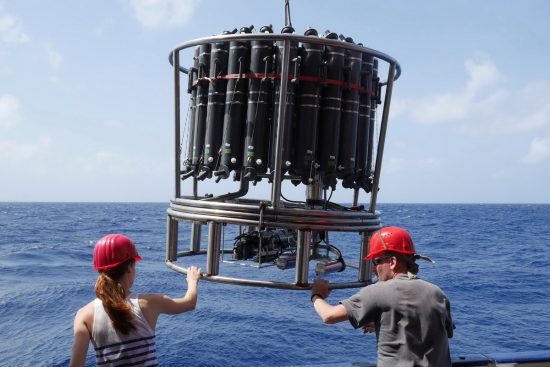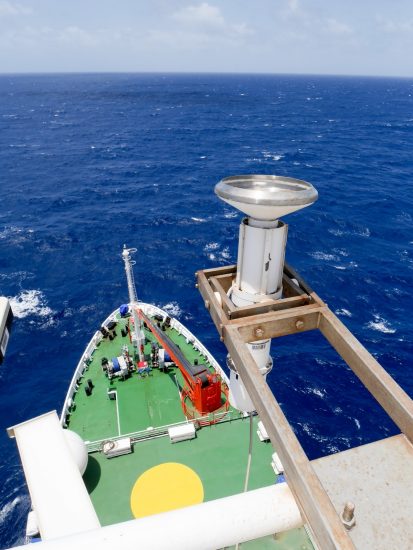



Scientists discover important process in nutrient cycle in tropical North Atlantic
Iron has been identified as an important nutrient for algae and the nitrogen cycle in the oceans.
Now, researchers have discovered that marine microorganisms such as bacteria also need iron to process phosphorus.
Scientists regard the tropical oceans as a “blue desert” because of the limited growth of algae there, compared to other oceanic regions. To grow, algae depends on nutrients like nitrogen and phosphorus. However, in the tropics, these nutrients are available in smaller quantities or are sometimes not available. This affects the entire ecosystem, as these "ocean plants" form the basis for many marine habitats.
Actually, nitrogen and phosphorus can be found in the tropical ocean. However, these nutrients are often incorporated into dead plants and
animals, which subsequently sink to the sea floor.
"Microbes can get to these hidden nutrients by recycling the dead matter with the help of enzymes. As a result, nutrients like phosphorus can be made available again for algae. A crucial element for this process is iron. Enzymes need this trace metal to work properly,” explained Dr Thomas Browning from GEOMAR Helmholtz Center for Ocean Research Kiel.
As lead author, Dr Browning and some of his colleagues from GEOMAR and the University of Southampton recently published a paper on this in the international scientific journal Nature Communications.
If you look at the nutrient distributions in the oceans on a global scale, you can see regional differences,” said Dr Browning. “Interestingly, we know from previous observations that for regions where nutrients are limiting the growth of marine algae, not all available pools of nutrients are being used. But why?”
The research team looked into this question during a research cruise within the framework of the Collaborative Research Centre 754 “Climate
– Biogeochemistry Interactions in the Tropical Ocean. Field experiments were conducted in which iron was added to seawater and the microbial
enzyme activity measured.
Dr Browning observed that the activity of a widely distributed group of microbial enzymes was affected by the iron content in the seawater.
The team used the results of their research to confirm a hypothesis made in a previous study by fellow researchers at University of Oxford.
“They demonstrated by laboratory experiments, that microbial enzymes need iron to process phosphorus, and suggested this could also be important in the ocean. We have confirmed for the first time that this is indeed the case,” Dr Browning explained.
Where nitrogen and phosphorus are concerned, nitrogen is regarded as the main limiting factor for the growth of algae in the ocean. However,
this relationship could change with the additional supply of nitrogen into global oceans caused by human activity. The limitation of phosphorus may become more common, while the presence of iron may play a major role. Such changes could exert an impact on the oxygen production of algae and their intake of carbon dioxide from the atmosphere.
Link to the study: www.nature.com/articles/ncomms15465.
 Herbert
Herbert 26th May 2017
26th May 2017